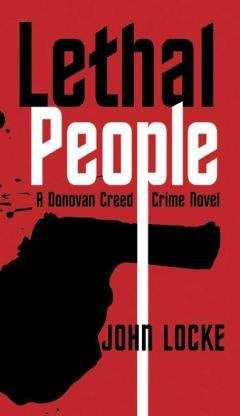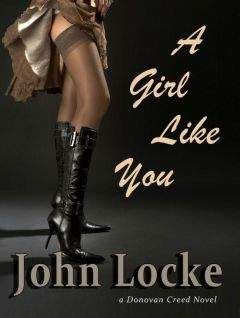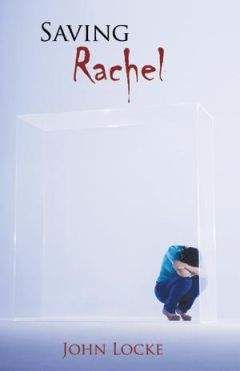John Locke - Lethal Experiment
“You are.”
“So your mind knows you wouldn’t believe a back pain. The subconscious mind is very clever. It won’t create a pain that can be ignored or put off . It takes advantage of you by creating something so convincing, you have to focus on it. In your case I’m going to go out on a limb and guess your father, or someone close to you, died of a heart attack.”
I could feel her looking at me, hoping for a reaction.
“So you’re saying the pain is only a smokescreen, something my subconscious mind created to distract me from what I was doing at the time.”
“That’s correct. Be glad it wasn’t colitis.”
“Colitis?”
“That’s the worst of the psychosomatic pains.”
“Worse than the heart?”
“Far worse.”
“Fair enough,” I said. “But as we discussed, what I was doing at the time is something I’ve done many times before.”
“Think it through, Donovan. I’ll bet there was something different about that particular time.”
So she was saying that my mind didn’t want me to kill the Peterson sisters. No, it was more than that. My mind tried to prevent me from killing them. But why? I’d killed dozens—okay, more than a hundred—people before. What made the Petersons different? It couldn’t be that they were women. I’ve killed women before, with no pains or afterthoughts. It couldn’t be that I’m going soft, because I’d recently killed Ned Denhollen without the first sign of chest pains.
So what made the Peterson sisters different from all the rest?
The answer was somewhere in the back of my mind, hiding in a place I couldn’t quite access. I was probably trying too hard to make sense of something my mind was trying to repress. Best thing to do was put it on hold and come back to it later. I stood.
She stood.
We shook hands.
“Will you come back?” she said.
“You’ve given me a lot to think about.”
“You need this,” she said.
“I’ll let you know.”
For a moment it seemed as though she wanted to say something else. The thought seemed to flit about her face like a scrap of paper caught on a wind current. In the end, she chose not to say it, whatever it was, and I was left to wonder what it could have been.
And realized that’s probably how she gets her patients to return.
Chapter 18
Sensory Resources had a Gulfstream in a hangar in Trenton that needed to get back to LA, so Callie and I caught it as far west as Vegas. With a ride like that, you grab while you can. In a perfect world it would have been a round-tripper, but hey, I couldn’t complain. I’d just have to charter something on my own dime to get us back home Thursday. I’d keep it Thursday night and use it to fly Kathleen and me to Charlie’s funeral on Friday.
In a G4, Trenton to Vegas runs about four hours. A lot of time to chat, but we were quiet most of the trip. I couldn’t stop thinking about what Dr. Crouch had said about the psychological pain. Until I got a handle on its cause, I’d be susceptible to severe chest pains at the worst possible times. That type of physical disability could prove deadly in my line of work.
“Cirque du Soleil,” I said.
Callie looked up at me. “What about it?”
“I didn’t know you were such a big fan of performance art.”
“There’s a lot you don’t know about me,” she said.
True, I thought. And a lot I did know.
This is how you get to be Callie: you’re eight years old, you watch TV, you play in the yard, you go to school, and you’ve got the brightest smile and bubbliest laugh in town. Except that one day you’re playing outside at your friend’s house and the sky has gotten dark and you decide if you run you can beat the rain, because it’s only a couple of blocks.
So you start running and you get about half-way home before the rain comes hard and you do something that changes your life.
You hesitate.
You stop running and wonder what to do. Should you keep heading home, or go back to your friend’s house and call your mom to pick you up.
At that precise moment of indecision, you’re tackled, punched, and dragged into the bushes.
The man is large and powerfully built. He smells of garlic and moldy cheese. He’s got you face down in the mud and he doesn’t have to hit you in the back of the head, but he does, and he hits you again and again. And each time he hits you, you start to black out, and you wish you could scream, but when you try, nothing comes out but a hiss.
The smelly man pulls your panties down to your ankles and hits you again. He starts touching you in a certain way—you know the word: inappropriately. At first you don’t worry so much because what you wanted more than anything was for him to stop punching the back of your head. But then, when he starts talking to you with a love voice, and calls you his sexy little girl you want to vomit. When his words turn really dirty and he starts calling you names, you start wishing he’d stop saying those things and go back to hitting you.
Then, just when you think it can’t get any worse, it gets much worse. The pain is unlike anything you’ve ever experienced, or ever imagined. It numbs you and your mind can’t tolerate it, so it just shuts down.
The man leaves you lying there to die, face down in a muddy field. You nearly drown in the muck but someone finds you and brings you home and for the next six months you’re in and out of hospitals and you can’t speak, can’t feel, can’t think. You sit in a chair facing a window and everyone thinks you’re looking out the window, but you’re actually staring at the window, and your mind is trying to work out the way the wooden pieces intersect, the slats that hold the window panes. Something about how they intersect. If you can figure that out, well, it’s not much, but it’s something to hold on to; a place from which to reclaim your sanity.
And then one day it’s fall and the wind is blowing the leaves off the trees and one errant leaf snags on the window pane next to the wooden slats and when it does, you focus on the leaf. For the first time in months, you see there’s something on the other side of the window, and if there’s something beyond that window, then maybe it’s something big enough to live for.
You begin the process of building your life from scratch. But you’re not building the life you were meant to live, you’re building something else altogether.
You realize you’re alive and not dead or dreaming. But you also realize that while you’re alive on the outside, on the inside you’re dead. A few months pass and they send you back to school, but something’s different. All the kids know what happened to you. They taunt you, hit you, but when they do, you feel no pain. That’s because none of them can hit you like the man hit you. And yet, you want to be hit, so you taunt them back. They hit you and you laugh. They hit you some more and you laugh harder. You love the feel of your own blood in your mouth. The taste and texture makes you feel almost alive.
You’re fifteen now, and you keep growing more and more beautiful, but you could care less. You start taking drugs, you flirt with the fathers of your former friends, and you get some of them to sleep with you in return for money you use to buy more drugs.
You eventually get busted for prostitution and you’re sent to a state hospital for evaluation. You’re coming off your drugs cold turkey and you freak out and they give you an injection and put you in restraints. The first time you wake up you find your arms, waist and ankles strapped to a bed. The next time you wake up, two orderlies are molesting you. You scream and wail and they run away and you think you know how to beat them, but all you’ve done was teach them to give you a stronger dose next time.
You spend a few weeks in the ward and by the time you’re clean you learn you have an IQ of 182, which is a hundred points more than you need for the life you’re willing to accept.
So you’re back home and back to other things, as well, like buying drugs and selling your body. And by the time you’re eighteen, you’re doing some new things, too, like stealing cars. You love the cars, love boosting them, love driving them fast, with the windows down and the radio up and the bass line thumping strong and steady.
Like a beating heart.
One night you’re driving a tweaked out Super Bee and you’re blitzed enough to wonder what it feels like to slam into the car that’s parked near the bushes where it all changed for you. You hit it hard, but you survive, and then it’s back to the ward, back to the knockout drugs that make the late night rape sessions possible for the otherwise un-dateable orderlies.
And you go on like that for a number of weeks or months until something happens: for the second time in your life, a man shows up and changes your life. Except that this man understands you and knows what you need. His name is Donovan Creed and yeah, he knows exactly what you need.
You need a reason.
You don’t get to be like eighteen-year-old Callie without experiencing soul-crushing trauma. And you don’t become the empty, broken, killing machine Callie of today unless you have a reason.
So yeah, I gave Callie a reason. I took her under my wing and trained her. She was an easy study because she was indefatigable, and because she flat didn’t give a shit.
Callie’s reason is revenge.
That’s why it’s easy for her to put a bullet into a total stranger, or kill date raping young men in cold blood. That’s why sometimes, for Callie, it’s personal.
I looked at her in the Gulfstream, sitting across the aisle, facing me, reclining, eyes closed. And God help her, she was and is the most exquisitely beautiful woman to ever walk the earth.
And the most deadly.
I couldn’t fathom this request of hers to see a Vegas show, but if Callie’s heart had opened to the point that she could appreciate theater, then I wanted to be there to experience it with her.
Still, I wondered what she meant by the life and death part.
Chapter 19
The Cirque du Soleil stage production of “O” was considered so important to the success of the Bellagio Hotel, they actually built the stage first, and then built the hotel and casino around it. And what a stage it is! It houses a pool containing one-point-five million gallons of water! There is a platform in the pool filled with thousands of tiny holes that allows it to rise and fall in seconds, without creating a wake. This enables cast members to perform high dives into the pool one minute, and skip across the surface the next.
Tickets are sold out months in advance. I didn’t ask Callie how she obtained our front-row balcony seats, and didn’t need to. Callie gets what Callie wants.
The show itself is hard to explain, but in general, it’s a celebration of water. There is no real plot, per se, nor is one necessary. “O” is a stunning display of athletes, acrobats, synchronized swimmers, divers and mythical characters, all of whom perform on a constantly changing liquid stage.
The program described the music as “haunting and lyrical, upbeat and melancholy”—and they weren’t lying, it was superb. For me, the blend of music and choreography enhanced the beauty and spectacle of the experience. Sure, I’d seen other circus acts that impressed me. But I’d never made an emotional connection with the performers before. But here, sitting beside Callie, watching “O,” I found myself caught up in the performers’ world of grace, strength and art. And loving every minute of it.
There are seventeen acts in the show, no intermissions. I glanced out of the corner of my eye at Callie several times, but each time her face showed less expression than Joan Rivers after a Botox treatment.
Until the seventeenth act: “Solo Trapeze.”
That’s when I saw Callie’s right hand tense, ever so slightly. I turned to look at her and saw her—not crying, but tearing up. Then, amazingly, a single tear spilled over the edge of her eyelashes and traced halfway down her cheek. She didn’t notice me staring, didn’t make a move to wipe it dry. More than nine million people have seen “O” in this theater, but none were moved more than Callie. I know, because I’ve seen her in dozens of situations that would have made the toughest guys cry. Add all those events to this and you get a total of one tear.
I opened my program and noticed the girl on the trapeze was the alternate. There was something familiar about the name.
And then it hit me.
It was Eva LeSage.
I’d never met Eva, but Callie used to guard her back in Atlanta for Sensory Resources. You get attached to the people you guard, and you like to see them succeed in life. Callie was proving to be far more sentimental than I’d ever known her to be. On the other hand, she hadn’t so much as frowned while killing Charlie and his friends a few nights ago, so it was unlikely she’d be mistaken for Mother Teresa anytime soon.
After the show I said, “There are six Cirque du Soleil shows playing Vegas.”
“So?”
“So that means tonight, five hundred performers will be walking the Strip—all of them limber enough to have sex without a partner.”
She gave me a curious look. “Anyone can have sex without a partner.”
“Not that kind of sex,” I said.
“Thanks for the visual.”
We climbed into our waiting limo and headed to the Encore Hotel. We had dinner reservations at Switch.
“Did you get anything else out of the show?” Callie said, “aside from the sexual dexterity of the performers?”
“It’s probably the best show I’ve ever seen: synchronized swimmers, acrobats, Red coated soldiers with powdered wigs riding on flying carousel horses, world-class high divers, contortionists, a man so deeply involved with his newspaper he continues reading it after bursting into flames…”
“Anything else?”
I smiled. “I was particularly impressed by the solo trapeze artist who made her debut tonight. The understudy from Atlanta. Eva LeSage.”
Callie studied me a moment before saying, “When did you figure it out?”
“Not till the very end.”
“You think she’s good enough to get the lead?”
I shrugged. “I’m not qualified to say.”
I looked at Callie and sensed she needed to hear some type of personal validation from me. Something honest, from the heart. I dug deep.
“For me, Eva had a delicate, ballet quality that went beyond special. She wowed me tonight. It was like watching poetry in motion.”
“Poetry in motion,” Callie repeated. Her voice had a wistful quality about it.
After a moment she said, “Did you make that up?”
“It’s an old sixties song.”
She grinned. “Eighteen sixties?”
“Nineteen, smartass. Johnny Tillotson.”
“Donovan, seriously. How do you know that—you weren’t even alive in the sixties.”
“Some things are worth learning about.”




